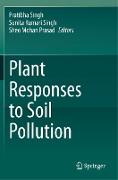Plant Responses to Soil Pollution
BücherAngebote / Angebote:
Soil is a vital support system for all life forms, and is directly or indirectly exposed to various pollutants and harmful chemicals. Any pollutant entering the soil system not only affects the quality of the soil, but also the plants and crops growing in it. Further, soil pollution has far-reaching impacts, since harmful chemicals can become biomagnified and enter the food chain, causing severe health concerns. Degraded soils can adversely affect various plant systems by creating biotic and abiotic stress, which increases the chances of biochemical and physiological disorders. Chronic diseases and lower yield have been reported as consequences of soil pollution.
Drawing on decades of soil-related research, this book focuses on soil pollution, types of soil pollutants, and their impacts on plant physiological and biochemical systems, along with crop productivity. The book begins with a brief introduction to soil pollution and continues with a discussion of the different types and their effects, together with remediation methods. It highlights various sources of soil pollution such as herbicides, acidification, chemical fertilizers, sewage sludge, heavy metals, and radioactive pollutants. It also covers plant responses to combinations of pollutants, effects of pollutants on plant ultrastructure, interactions between pollutants and plant diseases, and interactions between pollutants and agricultural practices. In closing, it addresses the challenges involved in the restoration of degraded land, side effects of agricultural practices in the form of greenhouse gases, and strategies for mitigating these effects.
Plant Responses to Soil Pollution offers an essential guide for students, environmental consultants, researchers and other professionals involved in soil and plant-related research.
Folgt in ca. 5 Arbeitstagen




